Address system of UAE
- Address system of UAE
- Recipient Name
- Street Address
- Locality/Area
- Emirate
- P.O Box Number
- Mobile Number
- Country
- Address Example
UAE Address system
The official addressing system of the United Arab Emirates (UAE) holds significant importance for various reasons. It plays a crucial role in facilitating efficient communication and the smooth functioning of logistics and postal services, ensuring that mail, packages, and important documents reach their intended destinations accurately and on time. In a rapidly developing country like the UAE, with a dynamic and ever-changing urban landscape, an accurate addressing system is vital for emergency services, public safety, and urban planning. Furthermore, it supports the growth of e-commerce and online businesses by providing a reliable means for customers to receive their orders.
The addressing system in the UAE includes several key components:

The UAE’s addressing system also enhances the country’s global image by demonstrating its commitment to modern infrastructure and technological advancement, making it an attractive destination for businesses and investment. Overall, a well-organized addressing system is an essential component of a well-functioning society and economy in the UAE.
Recipient Name: Including the recipient’s name in the official address in the UAE is of paramount importance for several reasons. Firstly, it ensures that the mail or package is delivered to the correct individual or entity, thus preventing misdelivery or loss of sensitive or valuable items. Secondly, it is a matter of courtesy and respect in the UAE culture to address individuals and businesses by name. Moreover, in a diverse and multicultural society like the UAE, where many people have similar or identical names, specifying the recipient’s name helps postal workers or couriers differentiate between addressees, reducing the potential for confusion. Lastly, for businesses, the recipient’s name is often essential for record-keeping, invoicing, and maintaining proper documentation. In summary, including the recipient’s name in the address not only ensures the accurate and secure delivery of mail and packages but also reflects the customs and etiquette of the UAE.
Street Address: The inclusion of a street number in an official address in the United Arab Emirates (UAE) is of paramount importance as it plays a pivotal role in ensuring the efficient and accurate delivery of mail and packages. UAE’s cities, especially Dubai and Abu Dhabi, have experienced rapid urbanization and growth, resulting in a complex network of streets and buildings. Street numbers provide a precise reference point, allowing postal services, couriers, and individuals to identify the exact location of a recipient. Landmarks: Mentioning notable landmarks or points of reference can help guide postal workers or couriers to the correct address.
Locality or Area: The inclusion of the locality or area in the official address in the United Arab Emirates (UAE) holds significant importance as it plays a crucial role in ensuring the precise and timely delivery of mail and packages. Given the diverse and rapidly developing urban landscapes of the UAE, localities or areas are essential for accurately pinpointing a destination within each emirate.
Emirate: The UAE comprises seven emirates, and it’s important to specify the emirate in the address to ensure proper delivery. The seven emirates are Abu Dhabi, Dubai, Sharjah, Ajman, Umm Al-Quwain, Ras Al Khaimah, and Fujairah.
P.O. Box Number: One of the most important elements of an address in the UAE is the P.O. (Post Office) Box number. Individuals and businesses are assigned a P.O. Box by the UAE postal authority, Emirates Post. This P.O. Box number serves as the primary means of receiving mail and parcels.
Mobile Phone Number: The inclusion of a recipient’s mobile phone number in the official address in the United Arab Emirates is of paramount importance. This crucial detail not only serves as a means for postal workers, courier services, and delivery personnel to contact the recipient for precise directions, but it also facilitates efficient communication and coordination during the delivery process. In a country where many areas are experiencing rapid development and urbanization, street addresses can sometimes be insufficient to locate specific properties accurately. Mobile phone numbers provide a direct line of communication, ensuring that deliveries reach their intended recipients without delays or complications.
Here’s an example of a typical UAE address format:
Recipient’s Name
Company Name (if applicable)
Building/Villa Number,
Street Name
Locality/Area Name
Emirate
P.O. Box Number
Mobile Number
UAE
For Instance
Recipient Name
Apartment 1203,
Al Maktoum Street
Bur Dubai,
Dubai
P.O. Box 12345
Dubai, UAE
In this example:
“Recipient Name” would be the name of the person or business receiving the mail.
“Apartment 1203” specifies the particular unit or apartment number.
“Al Maktoum Street” is the name of the street.
“Bur Dubai” is the area or district within the emirate of Dubai.
“P.O. Box 12345” is a postal box where mail and packages can be delivered if the recipient does not have a specific street address.
“Dubai, UAE” indicates the emirate and the country.
In some cases, particularly in more remote or less developed areas, the addressing system may be less precise, and individuals may rely on additional instructions or personal knowledge of the area for successful delivery.
In recent years, the UAE has made efforts to improve and modernize its addressing system, including the introduction of unique Makani numbers, which are used to pinpoint exact locations on a digital map. This has been particularly useful for emergency services and couriers. However, while Makani numbers are gaining popularity, the traditional P.O. Box system is still widely used and recognized.
Immigration Status and Benefits in UAE
- UAE Immigration Status
- Immigration Benefits
Immigration Status
Understanding one’s immigration status is of paramount importance for newcomers in the United Arab Emirates (UAE) for several crucial reasons. First and foremost, the UAE has a diverse expatriate population, with individuals hailing from all corners of the globe. As such, having a clear grasp of their immigration status is essential to ensure that newcomers comply with local laws and regulations, which can be intricate and subject to frequent changes. This knowledge empowers newcomers to make informed decisions regarding employment, housing, and daily life, safeguarding them from potential legal issues.
Furthermore, being aware of their immigration status allows newcomers to access various public services, such as healthcare and education, ensuring they receive the appropriate support and assistance. Additionally, understanding immigration rules and procedures helps newcomers plan for their future in the UAE, such as renewing visas or pursuing pathways to long-term residency. Overall, comprehending immigration status is fundamental to ensuring a smooth transition and successful integration into the UAE’s vibrant and dynamic society.
In the UAE, there are various types of immigration statuses available to individuals. Let’s explore some of these:
UAE Residence/Work Visa: A UAE Residence visa sometimes known as a work visa usually used for expats taking up a job in the UAE which is valid for 2 years for LLCs and 3 years for free zone companies. A residence visa should be applied by the employer (sponsor), medical is mandatory to get this visa. In 2019, the UAE implemented a new system for long-term residence visas. The new system enables foreigners to live, work, and study in the UAE without the need for a national sponsor and with 100 percent ownership of their business on the UAE’s mainland. These residence visas will be issued for 5 or 10 years and will be renewed automatically.
For Eligibility and details of Long term residence visa, click here
Tourist Visa: A UAE Tourist visa is for those who are not eligible for a visa on arrival or a visa-free entry to the United Arab Emirates. Tourist visas can be obtained for eligible individual tourists from around the world. Females below the age of 18 are not eligible to apply for this type of visa unless they are traveling with their parents. According to a Cabinet resolution passed in July 2018, children under the age of 18 years who are accompanying adults can get a free visa for their visit from 15 July to 15 September each year. Depending on your plan, tourist visas to the UAE can be issued for 30 days or 90 days duration, single entry or multiple entries.
https://u.ae/en/information-and-services/visa-and-emirates-id/visit-visas/tourist-visa
Transit Visa: There are two types of transit visas: one for 48 hours which is free of charge and another for 96 hours for AED 50 only. Transit visas are sponsored only by UAE-based airlines and must be processed and approved before entering the UAE. Both types of transit visas are not extendable. To get a UAE transit visa, you must have a passport or travel document with a minimum validity of three months, A photo of yourself against a white background, and, an onward ticket booking to a 3rd destination, other than the one you are coming from.
https://u.ae/en/information-and-services/visa-and-emirates-id/visit-visas/transit-visa
Student Visa: A UAE student’s visa is a 1-year renewable visa for a university or a college student studying in the UAE. It is issued to expatriate students who are residing in UAE under the sponsorship of their parents or relatives, or to foreign international students who come from abroad to join one of the higher educational institutes across UAE. On 24 November 2018, the UAE government approved a decision to grant a 5-year visa to outstanding students. School students must graduate with a grade of at least 95 percent from secondary schools whether public or private. University students must graduate with a distinctive GPA of at least 3.75 from universities within and outside the country.
Patient Entry Permit: Foreign patients can enter the UAE for treatment under the sponsorship of medical establishments and government and private hospitals. The sponsor (medical establishment) takes the responsibility of processing entry permits for treatment upon the patient’s request. The sponsor must be a hospital licensed and registered in the UAE. The documents needed to process the entry permit include the Patient’s passport copy, a letter from a registered hospital explaining the reasons for the visit, the Patient’s health insurance, and, financial security.
The specific requirements and application procedures for these visas can vary depending on your nationality, the emirate you plan to live in (e.g., Dubai, Abu Dhabi), and any recent changes in UAE immigration policies. Additionally, visa rules and regulations may have evolved since my last update. Therefore, I strongly recommend checking with the official UAE government authorities, such as the Federal Authority for Identity and Citizenship (ICA), the General Directorate of Residency and Foreigners Affairs (GDRFA), or the respective immigration departments in the specific emirate where you intend to live, for the most current and detailed information on immigration statuses for newcomers in the UAE.
Immigration Benefits
Understanding the immigration status and benefits for newcomers in the United Arab Emirates (UAE) is of paramount importance for both the individuals arriving in the country and the UAE itself. For newcomers, knowing their immigration status helps them navigate the complex process of living and working in the UAE, ensuring they meet legal requirements and avoid potential pitfalls. It also allows them to access the various benefits and services available, such as healthcare, education, and social support. Furthermore, being aware of their immigration status enables newcomers to make informed decisions about their long-term prospects in the country, like obtaining residency or citizenship.
On the other hand, for the UAE, proper management of immigration status is crucial for maintaining social harmony, tracking the workforce, and ensuring security. By providing clear guidelines and benefits for newcomers, the UAE can attract and retain talent, fostering economic growth and cultural diversity. In summary, knowing one’s immigration status is not only a matter of compliance but also a vital element in ensuring a successful and inclusive integration of newcomers in the UAE.
While the UAE has specific rules and regulations governing immigration, there are several benefits for newcomers who choose to live and work in the country:
Employment Opportunities: The UAE offers a wide range of job opportunities, especially in sectors like finance, construction, tourism, and technology. Many expatriates are drawn to the country for the potential to secure well-paying jobs and advance their careers.
Tax-Free Income: UAE residents enjoy the benefit of not having to pay personal income tax, making it an attractive destination for professionals looking to maximize their earnings.
High-Quality Infrastructure: The UAE boasts modern infrastructure, including state-of-the-art healthcare facilities, world-class education institutions, and a well-developed public transportation system, providing a high quality of life for newcomers and their families.
Safety and Security: The UAE is known for its low crime rate and overall safety. This contributes to a peaceful and secure environment for residents.
Cultural Diversity: The UAE is a melting pot of different cultures and nationalities, making it a welcoming and inclusive place for newcomers. You can find a variety of international communities and cultural events throughout the country.
Healthcare: The UAE provides access to high-quality healthcare services, with many medical professionals trained internationally. Employers often offer comprehensive health insurance for their employees and their families.
Education: There are numerous international schools and universities in the UAE, offering various curricula to cater to the diverse expatriate population. This is beneficial for families with school-age children.
Financial Services: The UAE is home to a robust banking and financial sector, providing easy access to financial services and investment opportunities.
Residency Options: The UAE introduced several visa and residency programs to attract and retain skilled professionals and investors. These include the Golden Visa program for investors and skilled individuals, long-term visas for retirees, and more.
Career Advancement: The UAE often provides opportunities for career advancement and professional growth, especially for individuals in sectors experiencing rapid growth and development.
It’s important to note that while the UAE offers many benefits to newcomers, there are also specific laws and regulations governing immigration and residency. These rules may change over time, so it’s essential to stay updated on the latest requirements and policies from official government sources or through legal counsel.
Before moving to the UAE, individuals should research and plan accordingly, taking into consideration the specific requirements and restrictions related to their circumstances and goals.
Your Essential Documents
- Your Essential Documents
- Passport
- Valid Visa
- The Emirates ID
- The labor card and employment contract
- Health Card
- Tenancy Contract (Ejari)
- Bank Account
- Driving License
Essential Immigrants documents
Understanding the essential documents is of paramount importance for newcomers in the United Arab Emirates (UAE). The UAE has a unique legal and administrative framework, and having the right documents is crucial for smooth integration into the country. Firstly, a valid passport and visa are fundamental for entry and residence, and compliance with visa regulations is vital to avoid legal issues. Furthermore, an Emirates ID card serves as a primary identification document, required for various services like opening a bank account, renting property, or accessing healthcare. Knowledge of the labor contract and its terms is critical for expatriate workers, ensuring their rights and responsibilities are protected. In addition, understanding the local driving license and vehicle registration process is essential for those who plan to drive in the country. Familiarity with these essential documents not only facilitates legal compliance but also promotes a sense of security and belonging, making the transition to life in the UAE more comfortable and successful.
Passport: The passport is an essential document for newcomers in the United Arab Emirates (UAE). It serves as the primary form of identification and proof of nationality, and it’s a fundamental requirement for entry and stay in the country. Your passport should be valid for at least six months beyond your intended period of stay in the UAE. It is through your passport that you obtain your visa, which can vary in type and duration depending on the purpose of your visit, whether it’s for tourism, employment, or residence. The passport is also crucial for various administrative and legal processes, including obtaining an Emirates ID, setting up a bank account, and registering a tenancy contract. Furthermore, it is your key document for international travel and re-entry to your home country or any other destination. Thus, newcomers must ensure that their passport is up to date and secure, as it plays a central role in their legal status and overall experience in the UAE.
https://www.passportindex.org/passport/united-arab-emirates/
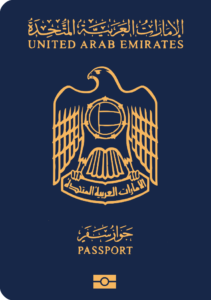
Valid Visa: A valid visa is an indispensable document for newcomers in the United Arab Emirates (UAE). It serves as the legal authorization to enter, reside, and engage in various activities within the country, depending on the visa type. Whether you’re a tourist, employee, or a dependent family member, obtaining the correct visa is crucial for compliance with UAE immigration regulations. Visas are typically sponsored by an employer, family member, or a UAE-based entity, and the type of visa you hold determines your rights and privileges during your stay. Ensuring that your visa remains valid and adhering to its terms and conditions is essential for a smooth and lawful transition to life in the UAE. Failure to have a valid visa or overstaying can result in fines, deportation, or other legal consequences, so newcomers are strongly advised to understand and adhere to their visa requirements.
https://u.ae/en/information-and-services/visa-and-emirates-id/track-visa-application-and-validity

The Emirates ID: The Emirates ID, also known as the UAE Identity Card, holds a pivotal role among the essential documents for newcomers in the United Arab Emirates. This mandatory identification card serves as comprehensive proof of identity, including crucial personal information, such as name, date of birth, nationality, and residency status. It plays a central role in accessing a wide range of government services, from healthcare and education to financial transactions and legal documentation. Newcomers are required to apply for the Emirates ID shortly after they arrive in the country, which involves biometric data collection and registration with the Emirates Identity Authority (EIDA). This document is indispensable for day-to-day life in the UAE, as it facilitates various administrative processes, and it’s often a prerequisite for obtaining or renewing residence visas, opening a bank account, and conducting official business in the country.
https://u.ae/en/information-and-services/visa-and-emirates-id/emirates-id
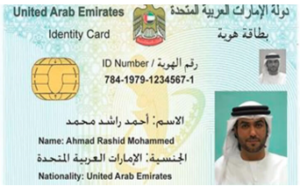
The labor card and employment contract: The labor card and employment contract are vital documents for newcomers in the United Arab Emirates (UAE). The labor card, issued by the Ministry of Human Resources and Emiratisation, serves as an official work permit and identification card for expatriate employees. It outlines essential details such as the employee’s personal information, job position, salary, working hours, and other terms of employment. This card is required for legal employment in the UAE and is typically arranged and sponsored by the employer. The employment contract complements the labor card, specifying the terms and conditions of employment in greater detail, including the rights and responsibilities of both the employer and the employee. Together, these documents ensure that newcomers are protected by UAE labor laws and regulations, providing a transparent framework for their work in the country, which is crucial for smooth and legally compliant integration into the UAE’s workforce.
https://blog.wego.com/uae-labour-card/
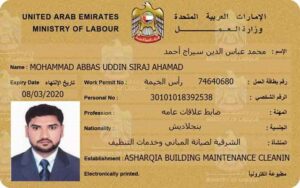
Health Card: In the United Arab Emirates, the health card is an essential document for newcomers, playing a pivotal role in ensuring access to healthcare services. Obtaining a health card is a mandatory step for residents, and it is often facilitated by either the employer or government authorities. This card serves as a gateway to the UAE’s robust healthcare system, allowing individuals to avail themselves of medical services and treatments, ranging from routine check-ups to specialized care. With health card, newcomers can visit hospitals, clinics, and healthcare facilities with ease, benefiting from the world-class medical care available in the country. It’s a crucial component of the comprehensive infrastructure in the UAE, promoting the well-being and health of its residents and contributing to a secure and welcoming environment for those making the UAE their new home.
https://www.ehs.gov.ae/en/services/services-directory/issue-of-a-health-card
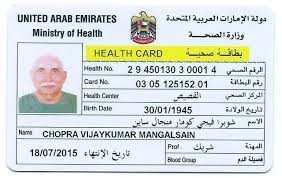
Tenancy Contract (Ejari): The Tenancy Contract, often referred to as Ejari, is an essential document for newcomers in the United Arab Emirates (UAE) who plan to rent a residence. Ejari is a legal requirement for all rental agreements in the UAE, and it plays a crucial role in establishing a secure and transparent relationship between landlords and tenants. This contract outlines the terms and conditions of the rental agreement, including the duration of the lease, rent amount, security deposit, and responsibilities of both parties. It is registered with the Ejari system, a government database that ensures the legality and authenticity of the rental agreement. Obtaining an Ejari-approved contract is necessary for various purposes, such as obtaining or renewing a residence visa, setting up utilities, and ensuring your rights and protections as a tenant in the UAE. It provides newcomers with a legal framework for their housing arrangements, contributing to a smooth and well-regulated rental experience in the country.
https://www.propertyfinder.ae/blog/ejari-registration-in-dubai/
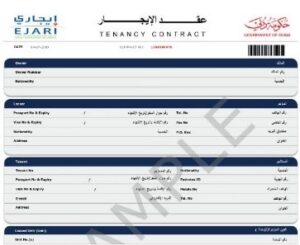
Bank Account: Opening a bank account is a crucial step for newcomers in the United Arab Emirates (UAE). It serves as an essential document that not only facilitates financial transactions but also enables individuals to effectively manage their finances in the country. To open a bank account, you typically need to provide your Emirates ID and proof of address, making it an integral part of establishing your residency in the UAE. Having a local bank account streamlines various financial activities, including receiving your salary, paying bills, and making everyday purchases. Additionally, it’s essential for expatriates to have a local bank account for ease of fund transfer, access to credit, and as a prerequisite for several services and transactions, making it a fundamental element in the process of settling in the UAE.
https://www.emiratesnbd.com/en/accounts
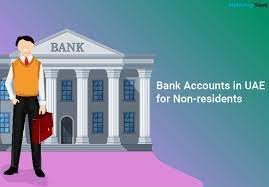
Driving License: Obtaining a driving license is a crucial document for newcomers in the UAE. With a sprawling landscape and a car-centric culture, having the ability to drive is often a necessity for daily life. The process of obtaining a UAE driver’s license may vary depending on your home country’s license and your residency status, but it typically involves taking both theoretical and practical driving tests. For expatriates, this often requires enrolling in a driving school to receive proper instruction and guidance. A UAE driver’s license is not only essential for navigating the country’s roadways but also for various official transactions, such as renting a vehicle, opening a local bank account, and even securing some employment opportunities. It’s important to be aware of the specific requirements and regulations surrounding driving in the UAE, as well as the various classes of licenses available, to ensure a smooth transition to life in the country.
https://u.ae/en/information-and-services/transportation/get-a-driving-licence
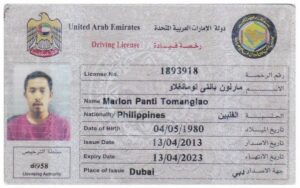
It’s important to note that specific requirements and procedures may change over time, so it’s advisable to check with the UAE government authorities or your embassy for the most up-to-date information regarding the required documents and procedures for newcomers in the UAE. Additionally, it’s often helpful to seek assistance from your employer or a local sponsor to navigate the paperwork and legal requirements.
Understanding Your Finance in the UAE
- Understanding your finance
- Your finances
- Your goals
- Your Urge to Take Risk
- Financing Planning
- Key Steps
- Banking Cards
Understanding Your Finance
Living in UAE is a dream come true for many, on account of its glamour, elegance, and lavish urban setting. But just like any other place, the UAE has its perks and lows. Therefore, you must measure your lifestyle in UAE in a way that saves you from unwanted monetary issues. That is why personal financial planning is a must in today’s UAE. Whether you are a regular wage worker, an investor, or a successful industrialist, you need to have adequately chalked-out financial planning for your future. It is not just about planning your pension or emergency monetary supplies but also covers every bit of your financial life.
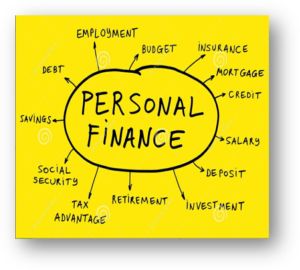
Here are some key factors that might help you figure out your financial planning in the UAE. Financial planning depends on three major factors:
- Your Finances
- Your Goals
- Your Urge to Take Risks
According to the Savings Index of 2022 by National Bonds Corporation, more than 41 % of UAE residents and savers had planned to begin proper financial planning by 2023. The increase in the savings rate was 4% annually, which boosted the economy as well. That is why the first step towards financial planning is to distribute your whole earnings into small pockets schematically.
Your finances: your finances include both your earnings and costs such as your regular income, liquid assets, fixed assets, and any other form of income source, and any household, personal, educational, medical costing, taxes, and bills. Creating a proper chart for all the income sources and expenses will give you an initial idea about your financial conditions.
Your goals: Your goals are the main factor, which determines what kind of financial planning you need for yourself. For example, buying a house can fall under a short-term goal for a middle-class UAE resident. At the same time, the same thing would be considered as a long-term plan for a low-wage menial worker. Figure out what kind of goals you want to achieve, before and after your retirement, and start saving or planning your money accordingly.
your urge to take risks: Lastly, your financial planning also includes your urge to take risks. There are multiple benefactor mutual funds investment groups in UAE, that secure your monetary investments for future purposes. You can also opt for different life insurance plans from the beginning. However, all kinds of investments require an extensive understanding of the legalities involved and the plausible market risks.
Towards Organized Personal Financial Planning: Financial planning is not a one-time effort. It needs regular monitoring, practical visioning, and clear commitments for steady and useful output. It would be best if you took complete ownership of your finances at an early stage of your life to have a secure and safe future for yourself and your family.
Creating a Budget: It would help if you started accumulating your assets of all forms while in your mid-thirties, at least. Plan out a proper list of incomes and expenditures so that you can quickly figure out your surplus money every month. That surplus is going to be your investment or savings in the future.
Paying off Your Debts: Once you know your financial reality, try to pay off all your debts as soon as possible. This is most important as Debt is a criminal offense in UAE, which can lead to fines and imprisonment. Hence, try to pay more than the promised amount each month, as it reduces the inhuman interest rates and thus gives you an edge. Delaying in payback can cost you a lot more if you are approaching your retirement age soon.
Planning the Goals: Your financial planning also includes your immediate family’s needs and goals. Sort and prioritize the goals as per the need of time. With proper revision occasionally, your goals can always be kept track of without becoming a burden. Plan your child’s education, house/car possession, health schemes, and other things as and when you want. If possible, draw an approximate value of each goal so that you can identify which goal to accomplish when.
Implementation/ Investments: Now is the time to put words into action. If you are a safe player, it will be better if you keep your investment planning limited to insurance and banking facilities. You can open a recurring savings account or a short-term insurance profile. But if you dare to take the leap of faith, try out market-reviewed, reliable investment brands at your convenience. Their market risks undoubtedly are higher, but they also give you way more return.
Keep an Emergency Fund: You never know when bad times arrive. It is smart and wise to put aside a bunch of dirhams for any unpredictable events. Your regular schemes might come to default at times as well, and your emergency funds can act as a buffer at that time so that you can continue your financial planning without a stopgap.
Final Thoughts: As they say, ‘The younger you are, the easier it will be for you to save and invest for retirement.’ So, the first thing for successful financial planning is to cut out procrastination and keep a check on your lifestyle. Especially in the UAE, the standard of lifestyle varies from time to time. Try not to get swayed by that. There are multiple award-winning financial planning professional groups as well. You need to be honest with yourself and have a logical and practical mind for well-organized personal finance management. Keep on reviewing your performance every month so that you can pull out money from unsatisfactory investments and reuse it wisely.
Financial planning maximizes your money, saves, and invests for growth and stable development, and lets you achieve your goals in time. Keep a regular check on money and be cautious with every move you make. After all, it isn’t rocket science.
Understanding and managing finances as a new immigrant in the UAE can be a crucial step in establishing a stable and comfortable life in the country. Here are some steps and tips to help newcomers navigate their finances effectively:
Research and Familiarize Yourself: Begin by researching the UAE’s financial systems, currency, and banking regulations. Understand the local currency (Dirham) and exchange rates. Familiarize yourself with the different financial institutions and banking services available in the country.
Open a Local Bank Account: One of the first things you should do is open a bank account with a reputable local bank. Most financial transactions and salary deposits are done through local bank accounts. Ensure that you have all the necessary documents, including your passport and residence visa.
Create a Budget: Establish a budget to manage your monthly expenses and income. Consider factors like rent, utilities, groceries, transportation, and any debts. This will help you control your spending and save money.
Understand the Cost of Living: The cost of living in the UAE can vary significantly depending on the emirate you’re in. Research the cost of housing, transportation, and other essentials in your specific location to plan your budget effectively.
Learn About Taxes: The UAE has no personal income tax, but it’s important to understand any other taxes, such as value-added tax (VAT), and ensure compliance with local tax regulations.
Savings and Investment: Consider setting up a savings account and exploring investment options. Some banks offer expat-specific savings accounts and investment products. Diversifying your investments can help you achieve your financial goals.
Debt Management: Be cautious with credit and loans. If you have existing debts from your home country, ensure that you have a strategy for managing them in the UAE. Understand the interest rates and terms of any loans or credit cards.
Currency Exchange: Keep an eye on exchange rates if you have income or expenses in a different currency. Consider using services that offer competitive exchange rates for currency conversion.
Financial Literacy: Educate yourself about financial concepts, including local banking procedures, savings, investments, and retirement planning. Many financial institutions offer resources and advice for newcomers.
Emergency Fund: Build an emergency fund to cover unexpected expenses. Having a financial safety net is essential for peace of mind.
Insurance: Ensure that you have appropriate insurance coverage for your health, belongings, and any other assets. Insurance can help protect you from unexpected financial setbacks.
Seek Professional Advice: If you’re unsure about specific financial matters, it’s advisable to consult with a financial advisor who is knowledgeable about the UAE’s financial landscape and regulations.
Stay Informed: Keep up to date with financial news and changes in local regulations that may affect your financial situation.
Networking: Connect with other expatriates and locals who can provide insights and advice on managing finances in the UAE.
By taking these steps and proactively managing your finances, you can adapt to the financial landscape of the UAE and make informed decisions to ensure your financial stability and growth as a new immigrant in the country.

Bank Cards: In the United Arab Emirates (UAE), a bank card, often referred to as a debit or credit card, is an essential financial tool for residents and visitors alike. These cards are issued by various local and international banks operating in the UAE and are widely accepted for making payments and conducting financial transactions. Debit cards are commonly used for everyday purchases, and they are linked to an individual’s bank account, allowing for easy access to funds through ATMs and point-of-sale (POS) terminals. Credit cards, on the other hand, offer a line of credit and can be used for purchases with the option to pay off the balance over time. Bank cards are essential for accessing a wide range of services, such as online shopping, bill payments, and even making payments at government agencies. They also play a vital role in cashless transactions and are integral to the UAE’s modern and tech-savvy financial ecosystem. It’s important to choose a card that suits your financial needs and to be mindful of fees, interest rates, and security measures associated with your chosen bank card.
Credit Card: Credit cards hold significant importance in the United Arab Emirates (UAE) for several reasons. They offer individuals a convenient and secure method of making payments for a wide range of expenses, from everyday purchases to larger investments. One of the primary benefits of credit cards in the UAE is their utility in managing finances, allowing cardholders to make purchases and pay bills while spreading the cost over a specified period. Additionally, credit cards often come with various perks and rewards, such as cashback, travel miles, and discounts at local establishments, enhancing the overall lifestyle experience in the UAE. Moreover, credit cards offer a level of financial flexibility that can be especially useful for newcomers or expatriates who may not have immediate access to large amounts of cash. They can also be vital for building a credit history in the country, which is essential for securing loans or rental agreements. However, it’s crucial to use credit cards responsibly to avoid accumulating debt, as unpaid balances can incur high interest charges.
https://www.emiratesnbd.com/en/cards/credit-cards
Debit Card: A debit card holds significant importance in the United Arab Emirates (UAE) as it offers a convenient and secure means of managing financial transactions in both daily life and business activities. First and foremost, a debit card provides easy access to one’s bank account, allowing for seamless cash withdrawals at ATMs and cashless payments at a wide range of establishments, including retail stores, restaurants, and online vendors. In a country known for its modern, cashless economy, the debit card is an essential tool for conducting everyday transactions.
Furthermore, debit cards in the UAE are commonly used for settling utility bills, making online purchases, and paying for services such as telecommunications and utilities. They also enable travelers and expatriates to access funds and make purchases without the need to carry large amounts of cash, enhancing personal safety and convenience. Additionally, some debit cards come with added benefits, such as cashback rewards, discounts at partner merchants, and travel insurance, making them a valuable financial tool for residents and visitors alike. Given the UAE’s commitment to technological advancement and financial services, a debit card is not just a convenience but a fundamental tool for anyone looking to manage their finances efficiently and securely in the region.
Transportation in UAE
- Overview of the Transportation System in UAE
- Transportation Modes
Overview of the Transportation System in UAE
The transportation system in the United Arab Emirates (UAE) is renowned for its efficiency, modernity, and rapid development. The UAE, comprising seven emirates, has invested significantly in building a comprehensive and integrated transportation network to meet the needs of its residents and the millions of tourists who visit each year. The backbone of the UAE’s transportation system is its extensive road infrastructure, featuring well-maintained highways, bridges, and tunnels. The country is also known for its state-of-the-art public transport systems, including the Dubai Metro, which is one of the world’s most advanced automated rail systems.
The UAE’s aviation sector is home to some of the world’s busiest and most modern airports, with Dubai International Airport consistently ranking among the top for passenger traffic. The UAE’s maritime transportation system is bolstered by its major seaports in Dubai, Abu Dhabi, and other emirates, playing a pivotal role in global trade and logistics.
Additionally, the UAE is making strides in promoting sustainability by investing in electric vehicles, encouraging public transportation use, and developing the future of autonomous and hyperloop transportation. The UAE’s transportation system reflects its commitment to staying at the forefront of technological advancements and ensuring efficient mobility for both residents and visitors, making it an integral part of the country’s growth and development.
Transportation Modes
The United Arab Emirates (UAE) boasts a diverse and sophisticated range of transportation modes. These include a well-maintained road network that covers the entire country, making it convenient for road transportation. The UAE’s public transport system includes the renowned Dubai Metro and an extensive bus network, offering efficient and eco-friendly urban commuting options. Aviation is a significant part of the UAE’s transportation infrastructure, with airports like Dubai International serving as major global hubs for both passengers and cargo. Maritime transportation is vital for international trade, with major seaports in cities like Dubai and Abu Dhabi handling large cargo shipments. The UAE is also embracing sustainable modes of transportation, with cycling lanes and bike-sharing programs in place. Taxis, ride-sharing services, and plans for high-speed rail further contribute to the country’s diverse and accessible transportation system.
Public Transport: Public transportation in the United Arab Emirates (UAE) is characterized by efficiency, modernity, and a strong commitment to sustainability. Major cities like Dubai and Abu Dhabi have invested significantly in creating world-class public transport systems that cater to the needs of residents and tourists. The Dubai Metro, in particular, is a shining example of a cutting-edge, driverless rail network that provides rapid and eco-friendly urban commuting. Buses, trams, and water taxis complement the public transport network, offering a range of options for getting around.
Not only does public transportation ease traffic congestion and reduce carbon emissions, but it also contributes to the overall quality of life in the UAE by providing convenient, accessible, and cost-effective ways to navigate the country’s dynamic urban environments. In a region known for its innovation and modernity, the UAE’s public transportation systems reflect the country’s commitment to smart and sustainable urban development.
Here are some of the different modes of public transportation available in the UAE:
Public Buses The UAE’s modern and well-organized public bus network connects various parts of the country, including major cities and suburban areas. Buses are a popular choice for daily commuting, intercity travel, and covering destinations that may not be easily accessible by other means of public transport. With comfortable seating, air-conditioning, and regular schedules, public buses offer a convenient way to navigate the urban landscape while reducing traffic congestion and contributing to the UAE’s sustainability efforts. In addition to traditional buses, there are luxury coach services that offer a higher level of comfort and convenience for longer journeys. Public buses in the UAE are a testament to the country’s commitment to providing accessible and efficient transportation options to all residents and guests.
Public buses are operated by:
- Integrated Transport Centre -Abu Dhabi
- Department of Municipalities and Transport in the Emirate of Abu Dhabi
- Roads and Transport Authority in the Emirate of Dubai
- Roads and Transport Authority in the emirate of Sharjah
- Transport Authority in the emirate of Ajman
- RAK Transport Authority in the emirate of Ras Al Khaimah.
In some emirates, special cards are used for payment. They are:
- Hafilat smart card in Abu Dhabi
- No card in Dubai
- Sayer card in Sharjah
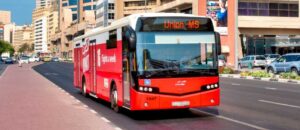
Metro: The metro system in the United Arab Emirates (UAE) is a symbol of modernity and efficiency, serving as a cornerstone of the country’s public transportation network with a length of 74.6 km. It runs along red and green lines. It stops at 49 stations of which 9 are underground. Every station has bus connections, taxi stops, and bicycle stands, in addition to electric escalators and lifts. All stations and trains are provided with air-conditioning and Wi-Fi connectivity. One compartment is reserved for women and children and one for Gold class ticket holders.
With sleek, air-conditioned trains, frequent service, and state-of-the-art stations, the metro has become an integral part of daily life for residents and a popular mode of transportation for tourists. Not only does it alleviate traffic congestion and reduce carbon emissions, but it also contributes to the overall quality of urban living by providing a convenient and accessible means of navigating the city’s diverse neighborhoods. The UAE’s commitment to modern public transportation, as exemplified by the metro, reflects the country’s dedication to sustainability and technological advancement in its ongoing mission to create smart and efficient urban environments.
To travel on the metro, you need to buy a Nol card or ticket.

Tram: Dubai, in particular, boasts a state-of-the-art tram system that serves the Marina and JBR areas. These trams provide a reliable and eco-friendly mode of transportation, seamlessly connecting key destinations within the city while offering passengers a comfortable and scenic ride. The UAE’s investment in tram systems not only eases traffic congestion and reduces carbon emissions but also reflects the country’s dedication to providing innovative and sustainable transportation options for residents and visitors alike.
Dubai tram is considered the first type of tram service outside Europe that works on underground power supply. Dubai tram network covers a distance of 10.6 km with 11 stations. Trams are provided with air-conditioning and Wi-Fi connectivity. Each tram consists of seven cabins distributed amongst the gold and silver classes. One silver-class cabin compartment is reserved for women and children.
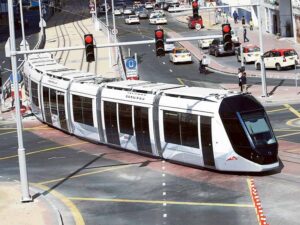
Taxis: Taxis are readily available in cities like Dubai and Abu Dhabi, offering a swift and efficient means of getting from one point to another. UAE taxis are known for their reliability, cleanliness, and professional drivers who are well-versed in the local routes. Taxis are equipped with meters, ensuring transparent and fair pricing. In addition to the standard taxis, luxury options like limousines are also available, providing travelers with a more upscale experience. Taxis are particularly popular for point-to-point transportation within cities and are often the preferred choice for tourists exploring the UAE’s vibrant urban landscapes. Their prevalence and accessibility make taxis a convenient and hassle-free transportation option for both locals and visitors. Taxis can be hailed from the roadside or can be booked in advance. There are special taxis for women and children, families, and people of determination.
To book a taxi:
- Abu Dhabi, call TransAD on 600535353 or book via the Abu Dhabi Taxi app available for both iOS and Android platforms
- Dubai, call RTA on 04-2080808 or book through the Careem app available on Google Play and App Store or Roads and Transport Authority
- Sharjah, call on 600525252 Request online
- Ajman, call on 600599997
- Ras Al Khaimah, book via the Careem app available for both iOS and Android platforms.
Booking charges apply and differ from emirate to emirate, the type of taxi booked, and the time of the day.

Smart Renting: Smart renting typically refers to the rental of vehicles on-demand through mobile apps or online platforms. In the UAE, this concept is gaining popularity through services like car-sharing and bike-sharing, allowing users to access vehicles for short periods, whether it’s a car for a few hours or a bicycle for a quick ride across town. These services provide a flexible and sustainable way of getting around, reducing the need for private vehicle ownership. Smart renting aligns with the UAE’s goals of promoting sustainability, reducing traffic congestion, and offering residents and visitors convenient and eco-friendly transportation options that can be accessed with a few taps on a smartphone. It’s yet another example of the UAE’s forward-thinking approach to urban mobility.

The service is provided in coordination with private-sector operators. Current private sector service providers available in the Emirate are:
Air Transport: The UAE boasts a world-class aviation sector, with major international airports such as Dubai International Airport consistently ranking among the busiest in the world for both passenger and cargo traffic. These airports are renowned for their state-of-the-art facilities, top-notch passenger services, and efficient cargo handling, making them major global hubs. The UAE’s flagship airlines, Emirates and Etihad Airways, are known for their quality of service, expansive global networks, and modern fleets, further solidifying the UAE’s position as a global aviation leader. The country’s investment in aviation infrastructure and services has not only enhanced its economic growth but also played a pivotal role in fostering international trade, tourism, and cultural exchanges. Air transport is undeniably a cornerstone of the UAE’s development and its mission to remain a key player in the global aviation industry.
The major airline companies in UAE are:

Maritime Transportation: The country’s extensive coastline and well-developed port infrastructure have positioned it as a vital maritime hub, fostering international trade and logistics. The UAE is home to several major seaports, with Dubai’s Jebel Ali Port being one of the largest and busiest in the world. Other significant ports include those in Abu Dhabi, Sharjah, and Fujairah. These ports handle substantial cargo and container shipments, connecting the UAE to global markets and facilitating the smooth flow of goods. The UAE’s commitment to maritime transportation extends to shipbuilding and repair facilities, as well as initiatives to promote sustainability and reduce the environmental impact of shipping activities. The maritime sector in the UAE not only supports the country’s economic growth but also underscores its importance in global trade and maritime connectivity.

Health Care Insurance
- Health Care Insurance Coverage in UAE for Newcomers
- Understand Health Insurance in UAE for Newcomers
Health Care Insurance Coverage in UAE for Newcomers
The UAE places a significant emphasis on healthcare and has invested heavily in building state-of-the-art medical facilities and hospitals staffed by skilled healthcare professionals. As a newcomer, you can expect a world-class healthcare system that offers a wide range of medical services, from routine check-ups to advanced treatments. Many healthcare providers in the UAE are equipped with the latest technology and offer services on par with international standards.
Additionally, the UAE government has implemented a mandatory health insurance system, ensuring that you and your family have access to quality healthcare services. While the cost of healthcare can vary, especially for non-essential treatments, the insurance system provides a safety net, making healthcare more affordable and accessible. Overall, the healthcare system in the UAE is designed to provide peace of mind and comprehensive care for newcomers, allowing them to focus on their new life in this dynamic and welcoming country.
The UAE places a strong emphasis on healthcare, with a growing number of state-of-the-art medical facilities, hospitals, and clinics that offer high-quality care. As a newcomer, it’s essential to understand the country’s healthcare landscape:
Health Insurance: Healthcare in the UAE is primarily financed through health insurance. Employers are required to provide health insurance for their employees, including expatriates. This insurance covers basic medical services and is mandatory, ensuring that you have access to healthcare. The quality of your coverage may vary depending on your employer and the specific policy, so it’s essential to understand the extent of your coverage.
Public and Private Healthcare: The UAE has both public and private healthcare facilities. Public hospitals and clinics provide free or highly subsidized healthcare to UAE nationals and residents. Private facilities cater to a diverse range of medical needs and are often preferred by expatriates due to shorter waiting times and additional services. Notable private hospitals include those under the banner of institutions like Cleveland Clinic, American Hospital, and NMC Healthcare.
Quality of Care: The UAE is known for its high standard of medical care. Many healthcare professionals are expatriates themselves and are well-trained. English is widely spoken in the healthcare sector, making communication with medical professionals straightforward.
Routine Check-ups and Preventive Care: It’s essential to prioritize routine check-ups and preventive care. Many expatriates find comfort in choosing a primary care physician or a family doctor for regular health monitoring. The UAE mandates specific vaccinations, so ensure that your vaccinations are up-to-date.
Emergency Services: In the case of a medical emergency, dial 999 for an ambulance. UAE’s emergency services are efficient, and you can expect prompt response and assistance.
Pharmacies: Pharmacies in the UAE are abundant and well-stocked. Many common medications are available over the counter, while others may require a prescription.
Cultural Sensitivity: The UAE has a diverse population, and cultural sensitivity is crucial. Dress modestly when visiting healthcare facilities, and respect local customs and norms. Women often prefer female healthcare providers for privacy during consultations.
Language: English is widely used in the healthcare sector. While you’re likely to find healthcare professionals who speak English, it can be helpful to learn some basic Arabic phrases for everyday communication.
Health and Lifestyle: The UAE’s climate and lifestyle can impact health. Staying hydrated, using sun protection, and maintaining a healthy lifestyle are all important considerations.
Family and Maternity Care: The UAE offers comprehensive family and maternity care services, including prenatal and postnatal care. You’ll find many hospitals and clinics specializing in maternity care.
Mental Health Services: Mental health services are available in the UAE, but the approach and acceptance of mental health may vary. Some hospitals and clinics have dedicated mental health departments.
Alternative Medicine: Alternative and complementary medicine services are available. Many residents and expatriates explore options like traditional Chinese medicine, Ayurveda, and homeopathy.

Understand Health Insurance in UAE for Newcomers
Understanding health insurance in the United Arab Emirates (UAE) is vital for newcomers to ensure access to quality healthcare services. Here are important things to understand about health insurance in the UAE:
Mandatory Health Insurance: Health insurance is compulsory for all residents and expatriates in the UAE. Employers are typically responsible for providing insurance for their employees, but self-employed individuals or dependents need to arrange coverage independently.
Health Insurance Cards: You should receive a health insurance card from your employer or insurance provider. This card is essential for accessing medical services and should be carried with you at all times.
Coverage Details: Carefully review your insurance policy to understand the extent of your coverage. Ensure you are aware of what is included and what may be excluded, such as specific medical procedures or pre-existing conditions.
Network Hospitals and Clinics: Most insurance policies have a network of hospitals, clinics, and healthcare providers. Using these network facilities can often mean lower out-of-pocket expenses. Check which facilities are covered under your policy.
Premiums and Co-Payments: Understand the premium amount you and your employer are required to pay for the insurance. Additionally, be aware of any co-payments or deductibles you may need to cover when receiving medical services.
Pre-Approval for Certain Treatments: Some treatments and medical procedures may require pre-approval from the insurance provider. Check with your insurer before undergoing such procedures to ensure they will be covered.
Emergency Coverage: Know what emergency services are covered by your policy. In case of a medical emergency, it’s essential to be aware of which facilities you can visit and the procedures for reimbursement.
Maternity and Family Coverage: If you plan to have a family in the UAE, check if your policy covers maternity and pediatric care.
Out-of-Network Coverage: Understand the terms and conditions of receiving medical care outside of the network of approved facilities. Out-of-network care may result in higher costs.
Claim Process: Familiarize yourself with the process for making a health insurance claim. This typically involves providing invoices and medical reports to your insurer for reimbursement.
Pre-Existing Conditions: Many policies exclude coverage for pre-existing conditions. Make sure to declare any pre-existing medical conditions when applying for insurance to avoid issues with coverage.
Renewal and Termination: Understand the renewal process for your insurance policy and be aware of the procedures and timelines for termination or changes in coverage.
Travel Insurance: Consider purchasing international travel insurance for trips outside of the UAE, as your UAE health insurance may have limited coverage when traveling.
Wellness and Preventive Care: Some insurance policies offer benefits related to wellness and preventive care, such as free vaccinations or health screenings.
Engage with your employer’s HR department or insurance provider to clarify any doubts or questions regarding your health insurance policy. Being well-informed about your coverage will enable you to navigate the UAE’s healthcare system confidently while managing your healthcare expenses effectively.
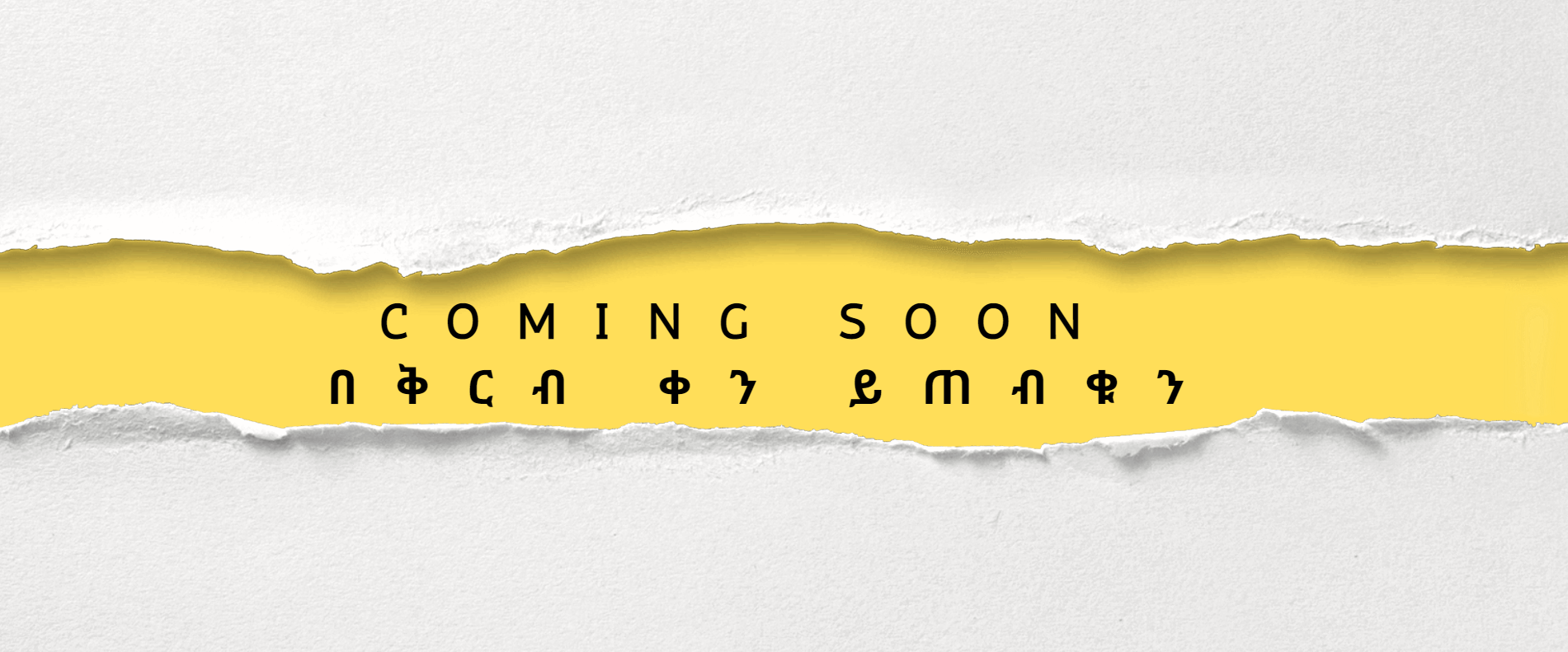
Dos and Don’ts
- Newcomer Dos
- Newcomer Don’ts
Newcomer Dos and Don’ts
Professionally, newcomers in the UAE should focus on networking and building strong connections within their industry. The UAE has a diverse and dynamic job market, and personal connections often play a crucial role in career development. Attend industry events, join professional associations, and engage with local colleagues to expand your professional network.
Additionally, maintaining a high level of professionalism in the workplace, respecting local business etiquette, and embracing the work culture in the UAE are essential dos for a successful and fulfilling career in the country.
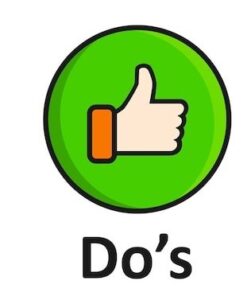
Understand Local Business Culture: The UAE’s business environment is deeply rooted in Islamic traditions and local customs, and having an awareness of these cultural aspects is essential for professional success. The UAE values formality, punctuality, and respect in business interactions. It’s important to address colleagues and superiors with their proper titles and show courtesy in all professional dealings. Embracing the local way of conducting business, which often includes meetings over coffee or meals, is also key to building strong relationships.
Network Actively: Networking is a vital aspect of personal and professional life in the UAE, where relationships often open doors to opportunities and growth. To establish a strong network, attend industry events, and conferences, and join local professional associations. These platforms provide excellent opportunities to meet like-minded individuals, share experiences, and gain insights into the local business landscape. Actively engaging with local colleagues and peers can not only enhance your career prospects but also help you navigate the nuances of the UAE’s dynamic and diverse job market.
Respect the Workweek: The UAE typically follows a workweek from Sunday to Thursday, with Friday and Saturday being the weekend. It’s important to adjust your schedule to align with local working hours, whether you’re in a professional or social context. This means understanding that most government and private offices operate from Sunday to Thursday, with business hours typically starting in the morning and ending in the late afternoon.
Be Open to Multicultural Collaboration: The UAE is a global melting pot, with a diverse population representing numerous nationalities and cultures. Embracing this diversity and demonstrating a willingness to collaborate with people from different cultural backgrounds is not only respectful but also highly advantageous. It fosters a rich and inclusive work environment, encouraging fresh ideas, innovative solutions, and a broader perspective. Multicultural collaboration enhances personal growth and helps build strong, mutually beneficial relationships.
Invest in Professional Development: The UAE places a high value on education and self-improvement, and many employers actively support their employees’ career growth. To thrive in this dynamic environment, newcomers should take advantage of opportunities for training, workshops, and skill enhancement. Whether it’s furthering your education, gaining certifications, or attending seminars, investing in your professional development can enhance your career prospects and help you stay competitive in the job market. This commitment to continuous learning not only benefits you but also contributes to the UAE’s broader goal of building a knowledge-based economy. By prioritizing professional growth, newcomers can make the most of their experience in the UAE and contribute to their personal and career development.
Maintain Professional Etiquette: The UAE’s business culture places a strong emphasis on respect, formality, and courtesy. Observing professional etiquette is essential for building and maintaining positive relationships with colleagues and superiors. This includes addressing individuals with their proper titles, showing politeness, and adhering to punctuality and deadlines. In meetings and interactions, maintaining a high level of professionalism, including active listening and clear communication, is highly regarded. By upholding professional etiquette, newcomers not only gain the respect and trust of their peers but also align themselves with the country’s cultural values, fostering a harmonious and productive work environment.
Learn About Labor Laws: The UAE has well-defined labor regulations that govern various aspects of employment, including contracts, working hours, leave entitlements, and termination procedures. Understanding these laws is essential to ensure that your rights as an employee are protected and that you are aware of your responsibilities. It’s also important to thoroughly review your employment contract to ensure it complies with UAE labor laws and meets your expectations. Knowledge of labor laws not only empowers newcomers to assert their rights but also helps create a harmonious working relationship between employers and employees, fostering a fair and equitable work environment.
Stay Informed: The UAE is a rapidly evolving and dynamic business hub, and keeping up with industry trends, market developments, and local business news is essential for career growth and competitiveness. By staying informed, newcomers can identify emerging opportunities, adapt to changes in their respective fields, and make informed decisions. Engaging with industry publications, attending networking events, and actively seeking information about the UAE’s business landscape can provide valuable insights and help professionals remain at the forefront of their industries.
Adapt to Local Business Practices: The UAE’s business environment is a unique blend of global commerce and traditional values, and understanding and embracing local practices is essential for professional success. This includes recognizing the importance of personal relationships, which often involve hospitality, such as meetings over coffee or meals. Being respectful, courteous, and punctual in all business interactions is highly regarded. Additionally, understanding and respecting the hierarchical structure within organizations is important, as decision-making processes can be formal and hierarchical.
Learn the Arabic Greetings: While English is widely spoken, Arabic is the official language, and understanding a few basic Arabic greetings can be a sign of respect and cultural sensitivity. Simple phrases like “As-salaam alaykum” (peace be upon you) and “Marhaba” (hello) can go a long way in fostering positive interactions and showing your appreciation for the local culture. This effort to learn and use Arabic greetings is often well-received and can help newcomers establish a warm and friendly rapport with locals.
Use of Emergency Service: The UAE has a well-established and reliable system for emergency response, including police, fire, and medical services. In case of any emergencies, such as accidents, medical issues, or security concerns, it’s essential to know how to access and utilize these services. The emergency number in the UAE is 999. When faced with a genuine emergency, do not hesitate to call this number for prompt assistance. It’s also advisable to be aware of the nearest medical facilities and hospitals, as well as the locations of police stations and fire stations in your area.
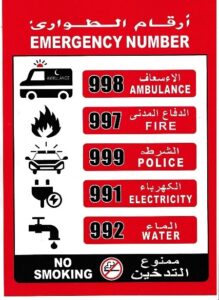
Newcomer Don’ts
United Arab Emirates (UAE). First and foremost, don’t disregard local customs and cultural norms; always be respectful and adhere to the country’s conservative values. Avoid engaging in public displays of affection, as these are considered inappropriate in the UAE. It’s also important not to criticize or disrespect the government, its leaders, or the local religion, as these are sensitive topics. Lastly, don’t neglect your professional appearance; dressing too casually in a business setting may be perceived as a lack of respect for the local culture and business practices. By being aware of these professional don’ts, newcomers can ensure a smoother transition and a more positive experience in the UAE.

Understand Local Business Culture: Failing to comprehend and respect the formality, punctuality, and traditions that underpin the UAE’s business culture can hinder one’s professional progress. Disregarding local customs, such as dress codes or norms of interaction, may be perceived as disrespectful and unprofessional. In the UAE, business relationships are built on trust and mutual respect, so not taking the time to learn and adhere to these cultural nuances can damage one’s reputation and hinder professional success.
Network Actively: Failure to engage in networking activities may limit opportunities for career advancement and personal development. The UAE’s business environment thrives on relationships, and not actively participating in industry events, conferences, and local professional associations can hinder one’s ability to tap into valuable resources, knowledge, and job prospects.
Respect the Workweek: Failing to adapt to this schedule may lead to misunderstandings and disruptions in your professional and personal life. Not adhering to local working hours and the workweek can affect your ability to coordinate with colleagues and clients effectively. It’s essential to be mindful of this cultural and scheduling norm to ensure a seamless transition and to respect the country’s work and social rhythm.
Be Open to Multicultural Collaboration: Avoiding collaboration with people from different cultural backgrounds may result in missed opportunities and strained relationships. Fostering a closed mindset limits your ability to benefit from the wealth of experiences, ideas, and perspectives that a diverse community offers. In the UAE, where collaboration across cultures is a daily reality, not being open to multicultural collaboration can hinder your ability to thrive in the dynamic and inclusive work environment of the country.
Invest in Professional Development: Neglecting professional development may limit your competitiveness in the UAE’s dynamic job market. Many employers in the UAE actively support employees’ growth by providing training and development programs, so not taking advantage of these opportunities may hinder your career progress. It’s important to recognize that investing in professional development not only benefits you but also contributes to the UAE’s vision of building a knowledge-based economy.
Maintain Professional Etiquette: Not addressing colleagues and superiors with their proper titles or not adhering to punctuality and deadlines can be perceived as disrespectful. Engaging in confrontational or negative behavior is generally frowned upon. Failure to maintain professional etiquette in the workplace may lead to strained relationships, hinder career growth, and even result in professional setbacks.
Learn About Labor Laws: Failing to understand these laws and your rights and responsibilities as an employee can put you at a disadvantage and leave you vulnerable to potential employment issues. Newcomers need to familiarize themselves with labor regulations and carefully review their employment contracts to ensure compliance. Ignoring these legal aspects can lead to misunderstandings and difficulties in the workplace.
Stay Informed: Not actively seeking information about industry trends and local business news can lead to professional stagnation and missed opportunities. In this competitive landscape, staying informed is not just an advantage but a necessity. Neglecting to do so can result in falling behind in your field and may hinder your career prospects. Professionals who remain well-informed are better equipped to make informed decisions, contribute to their organizations, and adapt to changes in their respective industries.
Adapt to Local Business Practices: Failing to embrace formality, punctuality, and the local customs that underpin business interactions may lead to misunderstandings and negative perceptions. Neglecting to adapt to the local way of conducting business can damage professional relationships and hinder one’s ability to thrive in the UAE’s diverse and dynamic job market.
Learn the Arabic Greetings: Failing to do so may not have immediate professional consequences, but it can be perceived as a lack of willingness to embrace the local culture and connect with the local population. It’s a small effort that can make a big difference in building meaningful relationships and enriching your experience as a newcomer in the UAE.
